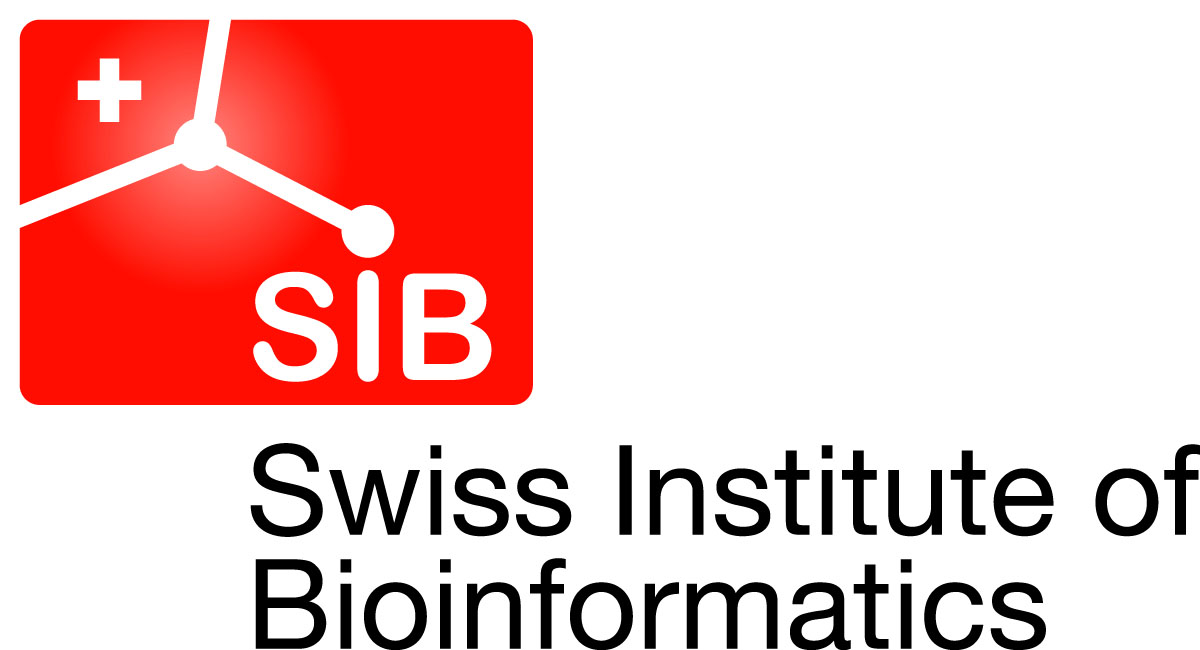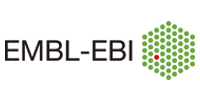Search results
-
julien-roux/SIB_course_2025_best_practices_differences_biological_sex
RNA-Seq Transcriptomics Reproducibility Quarto R RNA-seq
-
julien-roux/SIB_days_2024_workshop_EDI
RNA-Seq Transcriptomics Reproducibility Quarto RNA-seq
-
e-learning
UNIX Fundamentals
 • beginnerComputer science Problem based learning Programming Unix
• beginnerComputer science Problem based learning Programming Unix -
Problem Based Learning Guide
Problem based learning Teaching aid Train trainer
-
Hands-on: Reference-based RNA-Seq data analysis / Reference-based RNA-Seq data analysis / Transcriptomics
RNA-Seq Transcriptomics Genomics RNA-seq Quality Control
-
Video, Webinar
PHENET webinar (6 Dec 24): High throughput phenotyping on apple
Plant Phenotyping Envirotyping orchard wheat AI based tools -
Video, Webinar
PHENET webinar (6 Dec 24): Model-assissted wheat phenotyping
plant phenotyping envirotyping orchard wheat AI based tools -
Video, Webinar
PHENET webinar (6 Dec 24): Adaptable Phenotyping devices with AI embedded targeted towards agroecological traits
Plant Phenotyping envirotyping orchard wheat AI based tools -
Video, Webinar
PHENET webinar (6 Dec 24): Simulation intelligence services
Plant Phenotyping Envirotyping orchard wheat AI based tools -
Video, Webinar
PHENET webinar (6 Dec 24): Introduction, Tools and Methods
Plant Phenotyping Envirotyping orchard wheat AI based tools -
e-learning
Rule Based Uploader
 •• intermediateUsing Galaxy and Managing your Data collections tags
•• intermediateUsing Galaxy and Managing your Data collections tags -
e-learning
Rule Based Uploader: Advanced
 ••• advancedUsing Galaxy and Managing your Data collections tags
••• advancedUsing Galaxy and Managing your Data collections tags -
Tutorial
Data Manipulation - Collections: Rule Based Uploader

-
e-learning
RAD-Seq Reference-based data analysis
 • beginnerEcology EBV dataset EBV workflow Genetic composition EBV class RAD-seq Species population EBV class biodiversity
• beginnerEcology EBV dataset EBV workflow Genetic composition EBV class RAD-seq Species population EBV class biodiversity -
e-learning
Reference-based RNA-Seq data analysis
 • beginnerTranscriptomics QC bulk collections cyoa drosophila rna-seq
• beginnerTranscriptomics QC bulk collections cyoa drosophila rna-seq -
e-learning
Reference-based RNAseq data analysis (long)
 • beginnerTranscriptomics
• beginnerTranscriptomics -
Tutorial
Constraint-based reconstruction and analysis toolbox tutorials
Biomodelling -
Tutorial
Transcriptomics - Reference-based RNA-Seq data analysis

-
Tutorial
Transcriptomics - Reference-based RNAseq data analysis (long)

-
Recorded webinar
Inferring bacterial pangenomes with gene-based approaches
Microbiology
-
Tutorial
Sequence analysis - RAD-Seq Reference-based data analysis

-
Introduction to Sequencing-based Spatial Transcriptomics Data Analysis
 • beginner
• beginner -
WEBINAR: KBase - A knowledge base for systems biology
Systems Biology FAIR Research Open Source Software Metagenomics Microbiology
-
Recorded webinar
Discovering biological information from mass spectrometry-based proteomics

-
BY-COVID Spring 24 Baseline Use Case Workshop
Baseline Use Case Real-world data Policy questions SARS-CoV-2 vaccination real world data source vaccination effectiveness
-
Documentation, Exercise, Handout, Scripts
PGDH19 - Population Genetics Demographic History: model-based approaches (2019)
•• intermediatePopulation Genomics Phylogenetics -
Recorded webinar
Supercomputer-based modelling and simulation for advanced biomedical applications
Computational biology Personalised medicine Biomedical science
-
Documentation, Exercise, Handout, Scripts
PGDH18 - Population Genetics and Demographic History: model-based approaches (2018)
•• intermediatePopulation Genomics Phylogenetics -
FREE online course
Making sense of genomic data: COVID-19 web-based bioinformatics
 • beginnerbioinformatics NGS bioinformatics Next generation sequencing data analysis covid-19 sars-cov-2 coronavirus data-analysis data visualization genomics Genomic data …
• beginnerbioinformatics NGS bioinformatics Next generation sequencing data analysis covid-19 sars-cov-2 coronavirus data-analysis data visualization genomics Genomic data … -
Tutorial
QSPRpred App: Predicting Molecular Initiating Event Activation based on chemical structure
Medicinal chemistry QSPR
-

Bioconductor
Open development software project, based on the R programming language,
providing tools for the analysis of high-throughput genomic data. The project aims to enable
interdisciplinary research, collaboration and rapid development of scientific...242 training materials0 events (3 past events)Bioconductor https://www.bioconductor.org/help/course-materials/ https://tess.elixir-europe.org/content_providers/bioconductor Open development software project, based on the R programming language, providing tools for the analysis of high-throughput genomic data. The project aims to enable interdisciplinary research, collaboration and rapid development of scientific software. /system/content_providers/images/000/000/106/original/logo_bioconductor.gif?1541131228 -
Genome 3D
Genome3D provides consensus structural annotations and 3D models for sequences from model organisms, including human.
These data are generated by several UK based resources in the Genome3D consortium:
SCOP, CATH, SUPERFAMILY, Gene3D, FUGUE, THREADER, PHYRE.8 training materialsGenome 3D http://genome3d.eu/ https://tess.elixir-europe.org/content_providers/genome-3d Genome3D provides consensus structural annotations and 3D models for sequences from model organisms, including human. These data are generated by several UK based resources in the Genome3D consortium: SCOP, CATH, SUPERFAMILY, Gene3D, FUGUE, THREADER, PHYRE. /system/content_providers/images/000/000/006/original/images?1469458224 -

de.KCD
The German Competence Center Cloud Technologies for Data Management and Processing (de.KCD) is a cross-location and cross-domain contact point for teaching skills in data handling particularly utilizing cloud-based technologies, resources and methods for institutions, interconnected centers and...
1 event (12 past events)de.KCD https://datenkompetenz.cloud https://tess.elixir-europe.org/content_providers/de-kcd The German Competence Center Cloud Technologies for Data Management and Processing (de.KCD) is a cross-location and cross-domain contact point for teaching skills in data handling particularly utilizing cloud-based technologies, resources and methods for institutions, interconnected centers and researchers at all career levels. /system/content_providers/images/000/000/767/original/dekcd_logo.png?1733828414 -
Open Science MOOC
Open Science MOOC is a mission-driven project to help make ‘Open’ the default setting for all global research. We want to help create a welcoming and supporting community, with good tools, teachers, and role-models, and built upon a solid values-based foundation of freedom and equitable access to...
1 training materialOpen Science MOOC https://opensciencemooc.eu/ https://tess.elixir-europe.org/content_providers/open-science-mooc Open Science MOOC is a mission-driven project to help make ‘Open’ the default setting for all global research. We want to help create a welcoming and supporting community, with good tools, teachers, and role-models, and built upon a solid values-based foundation of freedom and equitable access to research. /system/content_providers/images/000/000/101/original/31343113?1536821365 -
The Carpentries
The Carpentries is a global community that teaches foundational coding and data science skills to researchers worldwide. Software Carpentry, Data Carpentry, and Library Carpentry workshops are based on The Carpentries' lessons. The global community includes instructors, helpers, trainers,...
2 training materialsThe Carpentries https://carpentries.org/ https://tess.elixir-europe.org/content_providers/the-carpentries The Carpentries is a global community that teaches foundational coding and data science skills to researchers worldwide. Software Carpentry, Data Carpentry, and Library Carpentry workshops are based on The Carpentries' lessons. The global community includes instructors, helpers, trainers, maintainers, mentors, community champions, member organisations, supporters, workshop organisers, and the Carpentries core team. /system/content_providers/images/000/000/670/original/TheCarpentries.svg?1681470910 -

FAIRsharing
FAIRsharing is a web-based, searchable portal of three interlinked registries, containing both in-house and crowdsourced manually curated descriptions of standards, databases and data policies, combined with an integrated view across all three types of resource. By registering your resource on...
1 training materialFAIRsharing https://www.fairsharing.org https://tess.elixir-europe.org/content_providers/fairsharing FAIRsharing is a web-based, searchable portal of three interlinked registries, containing both in-house and crowdsourced manually curated descriptions of standards, databases and data policies, combined with an integrated view across all three types of resource. By registering your resource on FAIRsharing, you not only gain credit for your work, but you increase its visibility outside of your direct domain, so reducing the potential for unnecessary reinvention and proliferation of standards and databases. /system/content_providers/images/000/000/109/original/FAIRsharing_logo.png?1544089458 -

The Center for Professional Innovation and Education
CfPIE is a leading provider of quality training for the life sciences industry. For nearly 15 years, the world’s biggest brands and companies in the pharmaceutical, biotechnology, medical device, and skin/cosmetics markets have relied on our on-site and classroom courses.
We are dedicated to...
0 events (7 past events)The Center for Professional Innovation and Education https://www.cfpie.com https://tess.elixir-europe.org/content_providers/the-center-for-professional-education-and-innovation CfPIE is a leading provider of quality training for the life sciences industry. For nearly 15 years, the world’s biggest brands and companies in the pharmaceutical, biotechnology, medical device, and skin/cosmetics markets have relied on our on-site and classroom courses. We are dedicated to helping companies improve their performance in various business functions, including regulatory, product development, go-to-market, compliance, and more. We are also committed to helping individuals at these companies grow their careers and improve their knowledge bases. /system/content_providers/images/000/000/079/original/CfPIE_Logo_230x70.jpg?1501710748 -

eNanoMapper
eNanoMapper developed a computational infrastructure for toxicological data management of engineered nanomaterials (ENMs) based on open standards, ontologies and an interoperable design to enable a more effective, integrated approach to European research in nanotechnology. eNanoMapper supports...
10 training materialseNanoMapper http://enanomapper.net/ https://tess.elixir-europe.org/content_providers/enanomapper eNanoMapper developed a computational infrastructure for toxicological data management of engineered nanomaterials (ENMs) based on open standards, ontologies and an interoperable design to enable a more effective, integrated approach to European research in nanotechnology. eNanoMapper supports the collaborative safety assessment for ENMs by creating a modular, extensible infrastructure for transparent data sharing, data analysis, and the creation of computational toxicology models for ENMs. eNanoMapper was funded by the European Union’s Seventh Framework Programme for research, technological development and demonstration under grant agreement no 604134. /system/content_providers/images/000/000/092/original/logo.png?1528313779 -

University of Leicester Bioinformatics and Biostatistics Analysis Support Hub (BBASH)
The ongoing development of next generation sequencing (NGS) technologies has meant that vast amounts of sequencing data is being produced, with researchers increasingly wanting the capability and knowledge to analyse their own data. Over the past 3 years BBASH has developed a number of 1, 2 and...
0 events (2 past events)University of Leicester Bioinformatics and Biostatistics Analysis Support Hub (BBASH) https://www2.le.ac.uk/colleges/medbiopsych/facilities-and-services/cbs/bbash https://tess.elixir-europe.org/content_providers/university-of-leicester-bioinformatics-and-biostatistics-analysis-support-hub-bbash The ongoing development of next generation sequencing (NGS) technologies has meant that vast amounts of sequencing data is being produced, with researchers increasingly wanting the capability and knowledge to analyse their own data. Over the past 3 years BBASH has developed a number of 1, 2 and 3 day hands-on, NGS analysis workshops designed specificially to meet the needs of laboratory based researchers with little or no experience of NGS data analysis and command line tools. The workshops are held at the University of Leicester's state of the art College Court Conference Centre and consist of introductory presentations followed by practical sessions where delegates will gain hands-on experience of analysing and interpreting real data. The BBASH trainers are University of Leicester bioinformaticians or researchers with many years experience in bioinformatics and bioinformatics training, having delivered many workshops across the UK and Europe. /system/content_providers/images/000/000/086/original/BBASHlogo.png?1509536575 -

UCLouvain Bioinformatics Platform
The platform's goak is to collaborate throughput the scientific community at the UCLouvain and offer technical and methodological bioinformatics support, including, among others:
support the bioinformatics aspects of grant proposals and experimental designs
high throughput omics data analysis...1 training material0 events (2 past events)UCLouvain Bioinformatics Platform https://uclouvain.be/en/research/bioinfo https://tess.elixir-europe.org/content_providers/uclouvain-bioinformatics-platform The platform's goak is to collaborate throughput the scientific community at the UCLouvain and offer technical and methodological bioinformatics support, including, among others: support the bioinformatics aspects of grant proposals and experimental designs high throughput omics data analysis such as genomics, epigenetics and transcriptomics (RNASeq or microarrays) or mass spectrometry based proteomics and metabolomics help in utilisation of public databases (TCGA, Gtex, CCLE, ENCODE, ...) development of dedicated algorithms and software. The platform also organises workshops in data analysis and bioinformatics to introduce particpants to widely used languages such as R, and get them started in the analysis of their own omics data. For additional information and any collaboration requests, please contact us by email at contact-cbio@uclouvain.be describing your needs, including, if data is already available, the underlying technology and experimental design. Members Prof Laurent Gatto Mr Theo Killian Dr Axelle Loriot Contact: contact-cbio@uclouvain.be CBIO - de Duve Institute - UCLouvain Avenue Hippocrate, 75 - bte B1.74.10 1200 Brussels, Belgium -

GTN
The GTN is a global community of teachers, trainers, developers, administrators, and learners based around the Galaxy Platform!
For Learners
Our community provides over 370 high quality, peer-reviewed training materials...802 training materials38 events (26 past events)GTN https://training.galaxyproject.org/ https://tess.elixir-europe.org/content_providers/galaxy-training The GTN is a global community of teachers, trainers, developers, administrators, and learners based around the [Galaxy Platform](https://galaxyproject.org)! **For Learners** Our community provides over [370 high quality](https://training.galaxyproject.org/), peer-reviewed training materials from a global community of [330 instructors](https://training.galaxyproject.org/training-material/hall-of-fame/), with a focus on reproducibility and [FAIRness](https://training.galaxyproject.org/training-material/faqs/gtn/fair_training.html). **Not Just Galaxy** We've expanded our content to include data science, software development, and even alternative <abbr title="scientific workflow management systems">SciWMSs</abbr> like snakemake! **For Teachers** All of our materials are [FAIR](https://training.galaxyproject.org/training-material/faqs/gtn/fair_training.html), and we put a lot of effort into the platform's [accessibility for all audiences.](https://training.galaxyproject.org/accessibility.html). If you're interested in [contributing your own materials](https://training.galaxyproject.org/training-material/topics/contributing/) we'd love to help you share them with the world! Most of our materials are licensed CC-BY-SA so you're welcome to use these materials for your own course and classes! If you want to use a specific version of a material you may be interested in accessing them via [our archive](https://training.galaxyproject.org/archive/). **For Administrators** If you're a budding Galaxy Administrator, or an experienced one looking to catch up, the GTN is the source for all of those materials. We also work to make it easy for you as an admin to support tutorials on your infrastructure, you'll find a list of tools and their installation instructions at the bottom of every tutorial. /system/content_providers/images/000/000/078/original/GTN-400px.png?1718821926 -

COG-Train
COG-Train is an international educational initiative providing open-access learning in SARS-CoV-2 genomics. It aims to facilitate an increase in global genome sequencing and analysis capacity, reduce sequencing inequality and enhance pathogen surveillance.
The programme’s training courses and...
4 training materialsCOG-Train https://www.cogconsortium.uk/priority-areas/training/ https://tess.elixir-europe.org/content_providers/cog-train COG-Train is an international educational initiative providing open-access learning in SARS-CoV-2 genomics. It aims to facilitate an increase in global genome sequencing and analysis capacity, reduce sequencing inequality and enhance pathogen surveillance. The programme’s training courses and development are built around our core concept of partnering with international researchers, public health experts and surveillance networks and providing open-access FREE training for all. COG-Train is funded by Wellcome Trust and the Foreign, Commonwealth & Development Office and led jointly by COVID-19 Genomics UK (COG-UK) consortium and Wellcome Connecting Science (WCS). Whole Viral Genome sequencing is an essential tool to identify and track the emergence and spread of SARS-CoV-2 variants as the COVID-19 pandemic progresses. Sequence data informs public health interventions and the further development of diagnostics, therapeutics and vaccines. There is inequity of access to pathogen sequencing worldwide, and COG-Train is committed to contributing towards efforts that close this gap. By building global partnerships with sequencing networks and scientists around the world, we hope to build a truly inclusive training programme that shares the many challenges faced in sequencing efforts, as well as highlighting the numerous success stories, and facilitating knowledge sharing. Outputs include a series of massive online, open-access courses on all aspects of SARS-CoV-2 sequencing based on WCS’s successful use of the FutureLearn platform, as well as week-long intensive virtual training courses, short expert workshops and concurrent distributed Classrooms, the latter of which utilises blended training. The distributed classroom model will be used to increase reach and impact of the learning materials, with training being delivered simultaneously in multiple classrooms across many countries. The training programme includes train-the-trainer components to help further build capacity in-country, rather than rely on a one-hit train and leave model. The COG-Train educational programme builds on the COG-UK values of data sharing, open collaboration, value for money, inclusivity and the prioritisation of public health impact. /system/content_providers/images/000/000/644/original/COG-Train_Logo.png?1657104279 -

Biomedical Sciences Research Center "Alexander Fleming"
The Biomedical Sciences Research Center "Alexander Fleming" is a non-profit research organisation based in Vari, Athens, Greece.
Since the beginning of its operations in 1998, the Center develops basic as well as translational and applied research programs at the cutting edge of modern...
1 training materialBiomedical Sciences Research Center "Alexander Fleming" https://www.fleming.gr/ https://tess.elixir-europe.org/content_providers/biomedical-sciences-research-center-alexander-fleming The Biomedical Sciences Research Center "Alexander Fleming" is a non-profit research organisation based in Vari, Athens, Greece. Since the beginning of its operations in 1998, the Center develops basic as well as translational and applied research programs at the cutting edge of modern biomedical sciences. Currently, the Center hosts 14 research groups distributed in 4 Institutes (Immunology, Molecular Oncology, Molecular Biology and Genetics, Cellular & Developmental Biology). Over the short period since its establishment, BSRC "Alexander Fleming" has gained extensive visibility in the European science arena. Fleming researchers have established transgenic animal models for rheumatoid arthritis, inflammatory bowel disease and multiple sclerosis and these models have served as a basis for multiple collaborations with the international biopharmaceutical industry in the evaluation of novel therapeutic compounds, or as tools for collaborative R&D. The Center is equipped with state-of-the-art Core Units which include: an Expression Profiling Facility, a Flow Cytometry Facility, a Protein Chemistry Lab, a Transgenics and gene targeting Unit, and a BioIT Unit, all of which serve internal collaborations, as well as external partners in academia and industry. The Center also runs an Innovation and Enterprise Unit that facilitates the protection and exploitation of the Center’s research and technologies. Fleming operates its own Animal House, which can house up to 15,000 mice, and has its own complete mouse histopathology unit. Fleming’s Animal house (certified with ISO 9001) provides husbandry of animals and services to the biomedical research community since 2001. It covers an area of approximately 600 m2 within the Center and is equipped with highly automated systems that provide the best possible conditions for mouse reproduction and maintenance. Its main activity is the reproduction and maintenance of mice stocks either of inbred strains or genetically engineered mice, such as transgenic and knockout mouse lines, as well as chemically induced mutants developed by Fleming researchers. The Animal House has a capacity to house more than 18,000 mice and is currently the largest Mouse Unit in Greece in terms of number and variety of mice. The Facility became a full member of EMMA in 2009. Main areas of research: Functional genomics and proteomics; Molecular and cellular immunology; Animal models of human disease; Transcriptional and post-transcriptional mechanisms of gene regulation; DNA repair; Stem Cell differentiation; Epigenetics; Learning and memory; ECM biology. Fields of excellence: Molecular mechanisms of disease (inflammation, cancer, metabolic syndrome, CNS disorders). /system/content_providers/images/000/000/051/original/logo.png?1469458221



